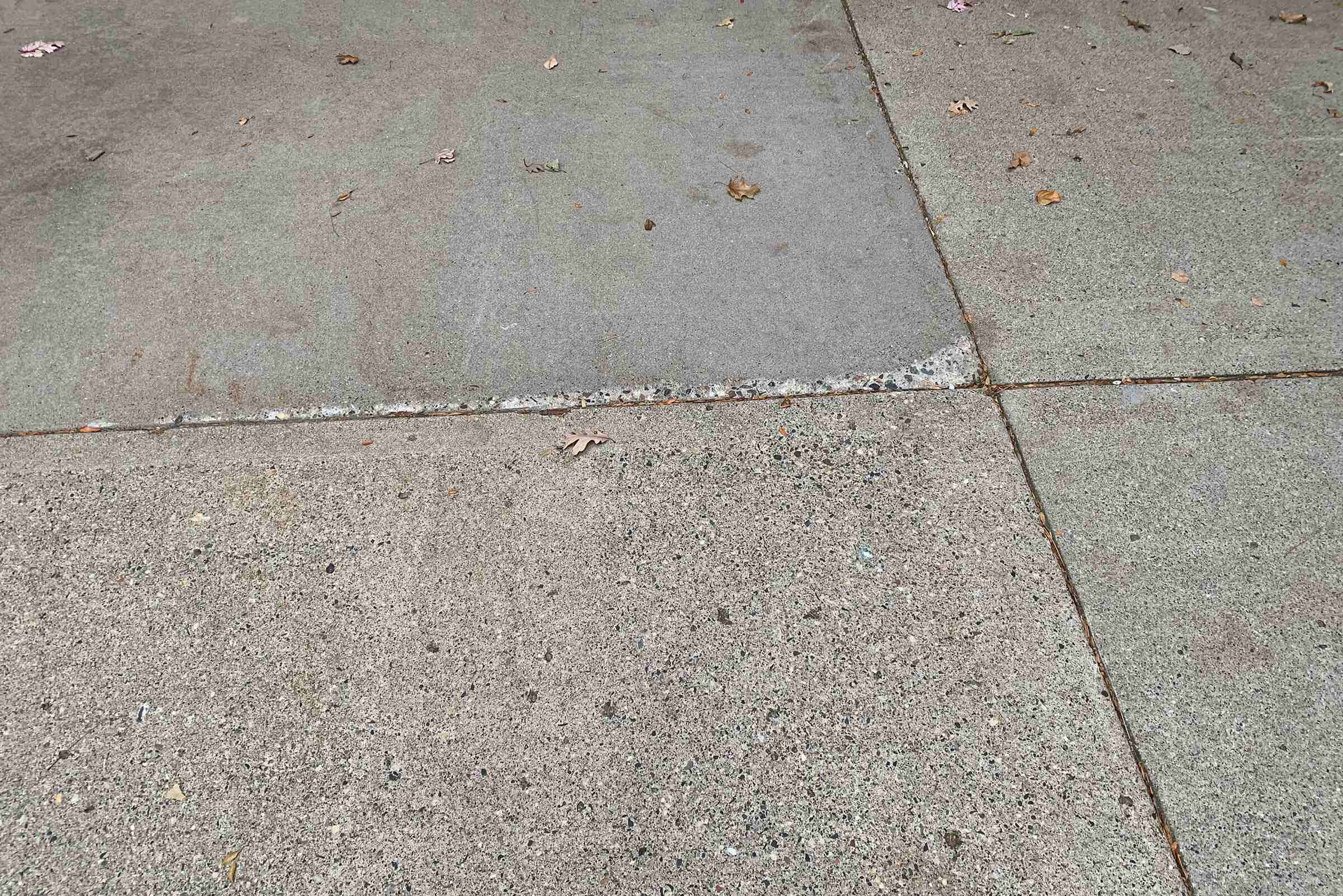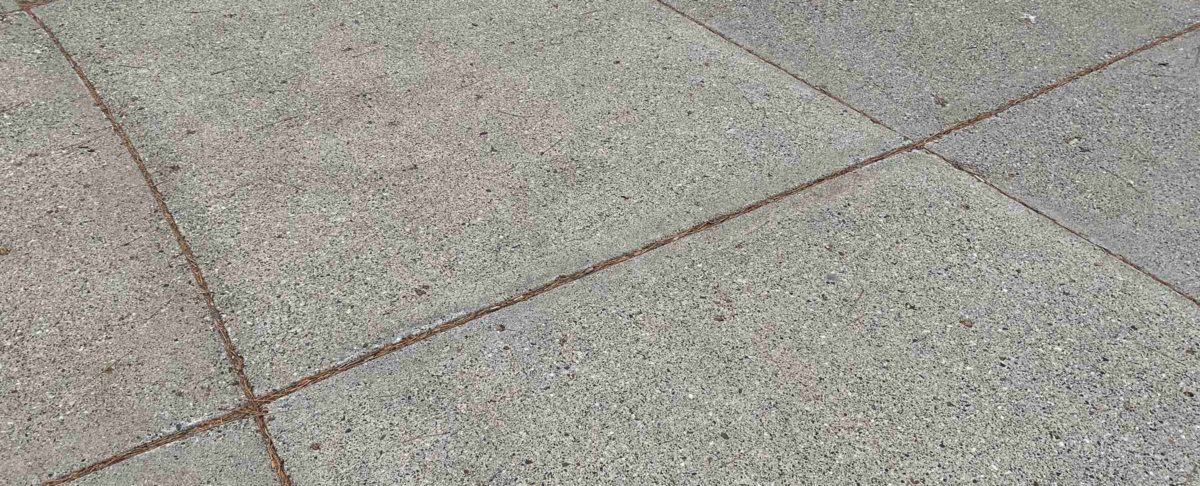When using concrete as the material for your driveway, you expect it to be sturdy and long-lasting. The main reason is that, in addition to being affordable, it’s known for its durability and versatility. Not only can you customize concrete to achieve the look you want, but you can count on that look lasting for years.
However, throughout your driveway’s lifetime, maintenance will need to occur. Situations may arise where you may wonder if you should resurface your concrete driveway or complete concrete driveway repair. Those are both reasonable concerns, which we’ll address in this guide.
Assess Your Concrete Driveway
Every concrete driveway is different. So, even if you and your neighbor completed a driveway installation on the same day, that doesn’t mean they’ll each be in the same condition today. The main reason is you could be driving different vehicles across them or maintaining them differently.
Look for areas where sinking might be occurring. That could be a sign of improper installation. Your driveway may also be experiencing damages due to excessive exposure to sun and moisture. These assessments will help you decide if you should resurface, repair, or replace your concrete driveway.
How Does Concrete Driveway Damage Occur?
Many homeowners believe a concrete driveway doesn’t need maintenance and will hold up for decades. However, because of its exposure to the elements and heavy use, that isn’t the truth. There are a variety of maintenance steps that must occur throughout a driveway’s lifespan to ensure longevity.
Concrete is a porous material, which means, throughout its lifetime, it begins deteriorating due to its structure. When mother nature adds moisture to this material, and we couple that with the weight of vehicles, that creates small cracks.
Here are some additional reasons for concrete driveway damage:
- Sunken concrete due to poor preparation of the subgrade
- Frost heaves occurring
- Thick tree roots growing underneath the concrete slab and causing disruptions
- Lack of edge support leading to cracking and crumbling
Over time, if homeowners don’t address them, minor damages will lead to more significant issues. Those issues may include the cracks widening, the concrete crumbling, and that may lead to the need to resurface the concrete driveway, repair it, or complete a replacement.
Completing Concrete Driveway Repair

It’s no mystery your concrete driveway gets a lot of use. It has thousands of pounds of metal driving over it daily. Plus, if you’re living in a cold climate, it’s experiencing freezing and thawing cycles. So, damages are inevitable.
Over time, you may start noticing small cracks occurring across the surface of your concrete driveway. Sometimes they also appear as small divots. Either way, these are signs that your driveways are beginning to experience minor damage. You can address these minor damages by finding the best concrete driveway patch.
If you see driveway cracks that are less than a quarter of an inch wide, then that means there isn’t any indication of worse damage occurring to the driveway’s surface. Therefore, a filler will complete this repair.
However, if you see larger cracks, that often signals a more significant issue is happening. Patching those cracks will provide a temporary solution. The main reason they’re temporary is that the water seeping into the crack will open it back up again.
How To Repair Broken Concrete Driveway
Learning how to repair a broken concrete driveway is an alternative to resurface a concrete driveway option. Here are some steps for when you see a crack a quarter-inch or less:
- Make sure you’re selecting a patch formulation that’s flexible so, during freeze and that cycles, it won’t pull away from the old concrete
- Breakaway any crumbling concrete before adding any material to the crack
- If there’s any old caulking, break that away using a chisel or screwdriver
- Pull away all debris and leaves, as well as weeds and grass growing in the crack
- Clean the driveway thoroughly using a pressure washer to remove dirt, mold, and stains from the entire driveway’s surface
- Allow the driveway to dry entirely before following the patch’s package instructions for application
You can find the best concrete driveway patch at your local home improvement store, as well as by comparing formulations online.
About Resurface Concrete Driveway
If you want to resurface your concrete driveway, many consider that the “middle-ground” of caring for your driveway. The first step is addressing minor cracks using the best concrete driveway patch. Or, if there’s too much damage and crumbling, you may need to weigh the pros and cons of concrete resurfacing vs. replacement.
Resurfacing involves concrete driveway repair, whereby the entire thing doesn’t need to come up. Instead, contractors can come in and address widespread damage by pouring a new layer of concrete over your existing driveway after removing the top layer. The result is a smooth surface that’s damage-free and intact.
That begs the question, “does concrete resurfacing last?”
The short answer is, “yes.” If there are no issues with the underlying foundation the resurfacing agent pours onto, then the new material will last. It bonds to the foundation, creates a seal, and leaves you with a brand-new concrete driveway.
Take Preventative Measures
Once repairs or resurfacing occurs, you want the materials to last. Therefore, you must take preventative measures. We all know moisture is concrete’s enemy. So, your first step is to point sprinkler systems away from your driveway. That helps prevent water from lingering beneath its surface.
Next, avoid lining your driveway with trees or shrubs. That way, their root system doesn’t cause the soil beneath your driveway to shift. If you already have plantings close to your slab, consider relocating them or cutting away their existing root systems.
Look at the angles of your home’s gutter system. If they point toward your driveway, then angle them, so they point at least four feet away from your house. Make sure you’re not directing them toward any structure with a concrete bottom. Also, make sure your gutters remain clear. Otherwise, you’re running the risk of them overflowing and moisture seeping to your driveway.
Concrete Resurfacing Vs. Replacement
Are you trying to figure out whether you should resurface your concrete driveway or if a replacement should occur? Weighing the pros and cons of concrete resurfacing vs. replacement is beneficial because it helps you understand the benefits of each.
Before considering any concrete driveway repair or resurfacing, think about its age. Are you working with a concrete driveway that’s between twenty to twenty-five years or older, you’ll benefit from a replacement. The main reason is you’re likely dealing with a lot of old patches and a previous resurfacing.
However, if it’s younger than that, here are the benefits of resurfacing:
- Enhances your driveway’s appearance: one of the best values of concrete driveway resurfacing is it improves your driveway’s appearance. The new layer gives your driveway a fresh look after years of fading and cracking.
- Extends its lifespan: if you care for your driveway correctly, it should last for up to thirty years. However, you run the risk of it deteriorating if you decide not to resurface. If that happens, you’ll need to tear the entire thing up sooner than you expect.
- Reduces concerns for patching: when small cracks appear, they do not cause significant alarm. You can typically use a small amount of filler to address them.
- Saves time and money: letting your driveway deteriorate too much requires a full replacement, and that requires significant time and monetary investment. Resurfacing a concrete driveway is a fraction of the time and cost.
Do You Want to Change the Material?
If you want to change the material of your driveway, then that’s a consideration whereby a replacement is the best option. If you’re looking at deep cracks, potholes and sunken in areas that you could address with resurfacing, think about what new material as an alternative. Would you be happier with an asphalt driveway?
Before making this decision, weigh the pros and cons of resurfacing. Think about how much longer you intend to live in your home. Do you want to continue using a concrete driveway because you’re happy with that material? Or, do you believe a driveway replacement with asphalt is a better option?
Research the longevity of asphalt compared to concrete resurfacing, as well as the cost of an asphalt replacement. This information will help you determine which is the best long-term option. Ultimately, you’re living with this decision for decades. So, you want to make sure it’s the best financially and aesthetically.




